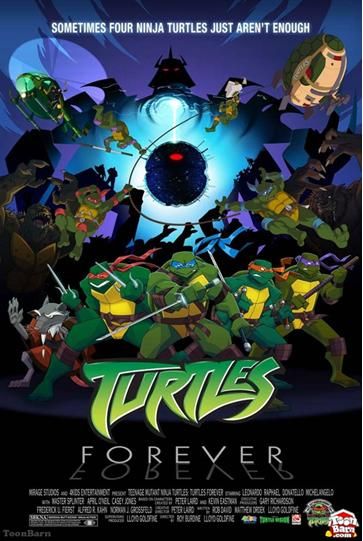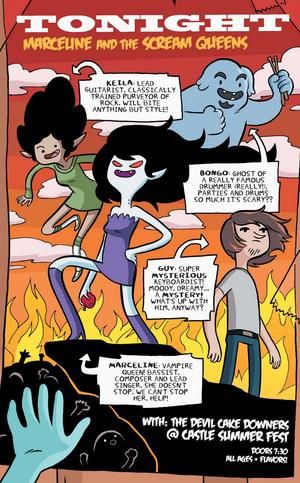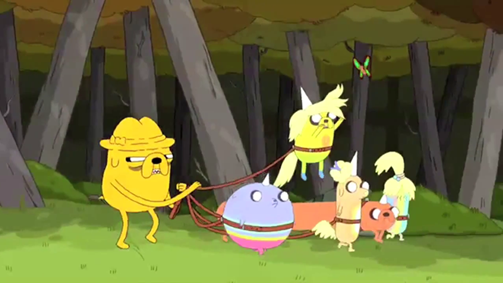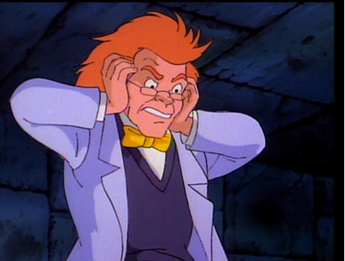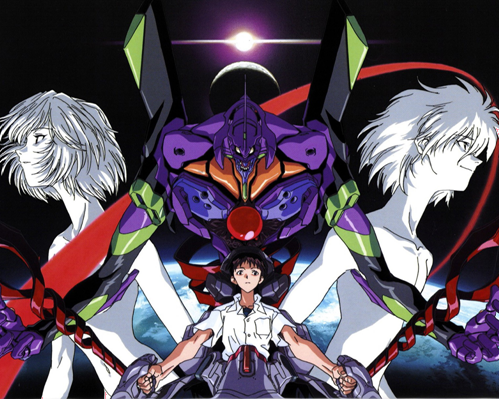
This series is still my number one anime, animated series, and television show. Even though it's been a decade since I finished the series, I'm always ready to wax eloquent about Neon Genesis Evangelion. Because I'm older and now swimming in notions of what makes good writing, I better understand the series's structural problems, but that doesn't change a thing.
Neon Genesis Evangelion is a 1995 anime series produced by Gainax and created by Hideaki Anno. In the year 2015, Shinji Ikari is summoned by his estranged father to pilot the creature known as Evangelion-01, defending Tokyo-3 and the rest of the post-apocalyptic Earth from bizarre beings known as "Angels".
Angels always come one at a time, while among the human cast, other shadowy western religion-themed conspiracies abound. End of Evangelion is the 1997 concluding movie, although the television series also has its own concluding episodes. No one knows quite how the two endings fit together.
Why is Evangelion so lovable? Not because it's a series that unfolds with the greatest care, sophistication and detail. Looked at in terms of plot it's a bit of a tangled mess, a story told with the most minimal of details, some filler, and a finale that never wraps up neatly. But in return, it is also a series that is both very bizarre and very "real", with a strange setting that is nonetheless steeped in powerful human emotion.
These things make up for Evangelion's arguable lack of quality. This arrangement makes the series distinct, and is a major part of the reason I consider it my number one. Other works may be better written, but they don't offer that same strangeness.
Evangelion has suffered from hype backlash in recent years, as many newer anime fans have never seen it, and others act like they were the first to see the "truth" of Evangelion, that it was a calculated attempt to gain the minds and wallets of fans who would latch onto any phony "depth".
For me, the very opposite is true: Evangelion is characterized by its honestly, its showing the human psyche in all its loud messiness, while still retaining a handhold on a conventional plot structure…usually.
We all know the religious references in Evangelion were just because they looked cool, and that a show might have weird crap and frenzied thought because that's what the director enjoys, not because they wish to swindle the audience.
But back to emotional dysfunction. Evangelion allows its characters, especially Shinji Ikari, to "lose it", to grind the plot to a halt because they have emotionally self-destructed, or, alternatively, are having strange visions, exploring their own psyches.
Some hate the series for this, but I love it. These scenes never feel calculated, though those few small rambles about rain and mountains are definite hiccups. In the wrong hands, these moments could be tedious, but as they are, they cut deep.
This appeal is shown in the original TV series ending, in which the larger plot is discarded in favour of characters talking to each other, either in a black void or over still frames, with a few surreal bits of animation and one alternate reality sequence where Shinji experiences a conventional (if a little bawdy) alternate reality.
The end game is that Shinji realizes he needs other people around him to confirm his own existence, and that is better to have that than to have nothingness. It was controversial, but one of my favourite things ever.
It would be lying, however, to say all this is a merely clinical appeal, and there is no real affection involved. I count Shinji Ikari as one of my most favourite characters of all time, and find most of the fanboy rage over him to be silly, especially since most of the cast is equally damaged, though somehow not as fascinating. Shinji and the one-episode humanized Angel Kaworu/Tabris are the only characters I say I "like", but all are entertaining.
Fact is, no matter how much you like a character or series for their emotional screwiness, eventually there has to be some genuine fondness underneath it all, or you'll abandon the series. And Evangelion may be bleak, but it's still tremendous fun to watch. Part of the reason is that the series also has some cute comedy in the first half, but also because it's all just so interesting.
That is not to say Evangelion is flawless, just that, for me, its particular appeal overwhelms these flaws. It breaks so many rules of good writing, yet it all works. For example, the discarding of the conspiracy plots, or the vague description of the Angels' nature and goals serve to unbalance some viewers, but I just don't care.
Shinji's school friends, all comparatively normal and functional, do leave off-screen after a great disaster and nothing more is heard from them, but that does contribute to increasing darkness of later episodes, so I don't mind.
The largest flaw, some would claim, is the character of Shinji Ikari. Amateur writers are encouraged to create protagonists who, while not perfect or without trouble, nonetheless soldier on through their world. They can't stop and agonize too much, and their perils exist to demonstrate their resilience.
And Shinji, it goes without saying, is not that sort of character. He inspires outright anger from people, as if they feel cheated. And I don't give a damn. You don't have to follow these rules, so long as the story is compelling.
Some have argued that Evangelion is emotionally unrealistic, which is untrue. It's just that, for various and very good reasons, emotional expression in fiction is usually more restrained. To show a great and ugly breakdown is unusual, but while it is not pretty, it is not divorced from reality. The genuine expressions of certain people can indeed look over-the-top, but that doesn't mean they are.
In Evangelion characters do grow and change, but don't totally overcome their problems, do not give the audience that catharsis. For example, the power of Shinji Ikari choosing reality over Instrumentality is worth little to some viewers, since inEnd of Evangelion his only reward is a burnt-out world where he has not been cured.
In the TV series, Asuka faces her past and it undoes her. Rei Ayanami only trades loyalty to Gendo for loyalty to Shinji, and may not have had a chance to be an independent being at all. And so on. Nobody gets out unscathed.
This is only indefensible if one believes that the audience must get release, deserves a payoff for sitting through angst. And perhaps they do want it, but a story doesn't exist to make an audience feel good. It exists to be told. And Evangelion manages to succeed without offering a conventional release.
That is another reason why Evangelion stays memorable: its appeal can transcend all standard knowledge of how to handle emotion, plot, and character and still come out wonderful. Evangelion can serve as a reminder that nothing about writing is set in stone. That we all need to develop our own standards and formulas, but do not have to treat them as sacred, and that something good can be made while breaking rules.
Some say that Evangelion is only a series for a particular time in one's life, as it captures teenage angst and those nameless fears that exist regardless of actual social stability. However, the adult characters haven't overcome their problems either, and the suggestion is that age alone can't free people from the problems that haunt them. Again, it's part of Evangelion not restraining emotion and having it work out beautifully. It can still be a series for all seasons.
Neon Genesis Evangelion also just looks really good. The series is infamous for its limited animation, and I won't argue against that. There are many simple or flat moments in terms of expressions and movement. But the look of the series—the designs of characters, Angels, Evas, equipment, backgrounds, and surreal sequences—is so vibrant and eye-catching that I almost forget it. And sometimes, the limited animation manages to edge itself into a sort of elegant minimalism. Sometimes.
I'm only speaking of the original TV series and movies, not the new Rebuild of Evangelion series of films. While these have been praised for better plotting and more restrained emotion, even as signs of Anno's improved outlook on life (!), I find them choppy in construction, thin on emotional intensity, and embodying tropes I'd rather Evangelion didn't. Also, Shinji was worryingly annoying, which is the opposite of most viewer's reactions. I don't think he was as changed as much as others are claiming, but something just isn't there anymore.
I wish I could celebrate these movies along with the rest of the fandom, but I just can't. I can't get into them. It forced me to accept that sometimes, a work has such an intense impact on you, that no other version of it will do, no matter the objective improvements. There is no reason to apologize for these feelings, as long as you are reasonable about expressing them.
All of this, however, only applies to the first two movies. The third has only recently released in Japan at the time of this writing, and what I've heard of it makes it sound intriguing.
But whatever happens, the original Neon Genesis Evangelion is still great, something that stands above all others. It's weird, it's crazy, and it's poignant as all hell. Any flaws in its construction are overwhelmed by that truth.

